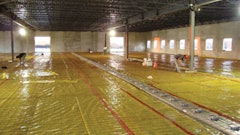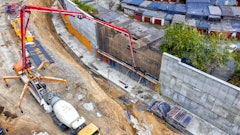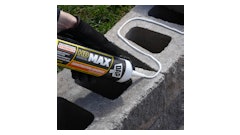As of this writing, several congressional races and two governors races are still undecided, the overall count suggests that the Democrats will control the House of Representatives but the Republicans will maintain control over the US Senate.
The new House majority will likely initiate several investigative panels focusing on the Trump administration federal agency actions, which could delay regulatory action on the new wage-hour overtime rule, the new joint-employer standard, as well as new OSHA guidelines. We can also expect the Democrat leadership to sponsor legislation banning compulsory arbitration agreements, increasing entitlement to overtime pay, raising the minimum wage, promoting unionization, requiring mandatory paid sick leave, and making the NLRB keep the Obama-era joint-employer standard in place.
With a Republican majority in the Senate, however, none of these legislative measures is likely to even reach the President’s desk. Of course, there, they almost certainly would be vetoed, and there is not a sufficient number of votes to override a Presidential veto.
About the only issue that might get through the gridlock is improvement of the nation’s infrastructure. Here, Democrats and Republicans might find enough compromise to get something done. Although any infrastructure improvement legislation is unlikely to help residential concrete contractors, there is hope that commercial contractors will eventually benefit from an infrastructure bill.
The day after the midterm elections saw Attorney General Jeff Sessions resign amid pressure to do so. The Attorney General’s former Chief of Staff, Matthew Whittaker, will now be Acting Attorney General. It is unclear how or if this will affect Robert Mueller’s investigation of the Russian interference with the 2016 elections and Trump’s potential involvement.
Trump plans on other changes after the disappointing Republican results in the midterm elections. Other top aides that may soon face the ax include White House Chief of Staff John Kelly, Secretary of Homeland Security Kirstjen Nielsen, and possibly Robert Mueller himself, although that will undoubtedly cause much political concern. In any case, post-election changes in the Administration seem highly likely.
Notable Developments for Concrete Contractors
First, there are new FMLA forms issued by the Department of Labor. While these forms are not required, as an employer you must use some form and why not use the ones that the government has prepared for free. You can access the new FMLA forms here https://www.dol.gov/whd/fmla/forms.htm.
Because concrete contractors are part of the construction industry, they need to be particularly aware of ICE audits and I-9 compliance. ICE, or Immigration and Customs Enforcement, has radically increased the number of worksite audits. In one week this past July, ICE served 2,738 Notices of Inspection and made 32 arrests. That constitutes more NOIs than are usually served in a year. Since January, ICE has served more than 5,200 NOIs on US businesses. That could lead to a total of over 8,500 in 2018 more than double the highest amount previously – 3,100 in 2013. Failure to follow the I-9 compliance rules can result in civil and/or criminal penalties. For example, in fiscal year 2017 ICE made 139 criminal arrests and 172 administrative arrests, and imposed penalties of $7.8 million in fines and $97 million in forfeitures. Contractors working on federal infrastructure projects face a “double whammy” of enforcement because they are in construction and because national infrastructure is the subject of intense ICE scrutiny.
Some Good News
OSHA has clarified its position on post-accident drug testing and safety incentive programs, now taking the position that such programs can be lawfully implemented provided that the employer is not found to have retaliated against an employee unlawfully. Previously, OSHA was against such programs because of a perception that employees would be reluctant to report safety concerns.
Contractors should note some new marijuana legislation. Recreational use is now lawful in Michigan and medical use of marijuana is now permissible in Utah and Missouri. These changes should not impact employment or a contractor’s ability to preclude impairment at work. The key here is to focus upon impairment rather than use or possession of marijuana. And, it is always safest for an employer to have a third party expert – such as an occupational medicine clinic - make the impairment determination.
Finally, #MeToo is now over a year old, and going stronger than ever. Make certain that you are well protected from a sexual harassment investigation and resulting negative publicity. If necessary, be proactive and take steps now to prevent future problems.


























